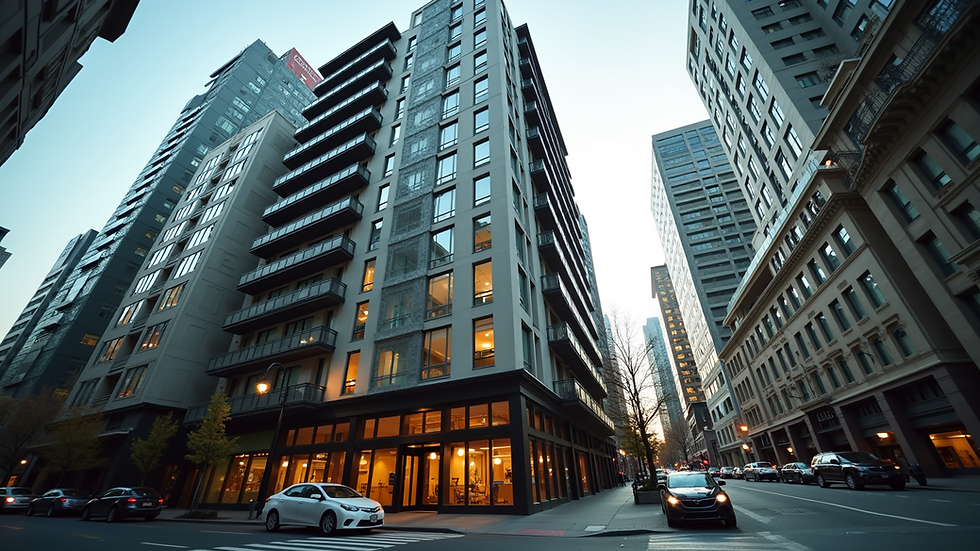Master Property Management: Essential Best Practices
- Christian Bryant

- Nov 4, 2025
- 4 min read
Managing rental properties effectively is both an art and a science. Over the years, I have learned that success in this field depends on a blend of solid knowledge, clear communication, and adherence to legal standards. Whether you own a single unit or multiple properties, mastering property management best practices can save you time, reduce stress, and increase your rental income.
In this post, I will share essential strategies that have proven effective in the Portland, OR metro area. These tips are practical, actionable, and designed to help you navigate the complexities of property management with confidence.
Understanding Property Management Best Practices
Before diving into specific techniques, it’s important to understand what property management best practices entail. These are the methods and procedures that experienced landlords and property managers use to maintain their properties, keep tenants satisfied, and comply with local laws.
Some key components include:
Tenant screening and selection: Choosing reliable tenants reduces turnover and late payments.
Maintenance and repairs: Regular upkeep prevents costly damage and keeps tenants happy.
Legal compliance: Following Oregon landlord-tenant laws protects you from disputes.
Clear communication: Transparent interactions build trust and reduce misunderstandings.
Financial management: Keeping accurate records and budgeting wisely ensures profitability.
By focusing on these areas, you create a solid foundation for successful property management.

Tenant Screening: The First Step to Success
One of the most critical steps in managing rental properties is tenant screening. A thorough screening process helps you find tenants who pay rent on time, respect the property, and follow lease terms.
Here’s a practical approach:
Application form: Use a detailed form that collects employment, rental history, and references.
Credit check: Verify financial responsibility by reviewing credit scores and reports.
Background check: Look for any criminal history or eviction records.
References: Contact previous landlords and employers to confirm reliability.
Interview: A brief conversation can reveal a lot about a tenant’s attitude and expectations.
For example, I once had a tenant with excellent references but a poor credit score. After discussing their situation, I agreed to a higher security deposit and monthly rent payments via automatic transfer. This flexibility helped secure a responsible tenant while protecting my investment.
Remember, consistent screening criteria are essential to avoid discrimination claims. Oregon law requires fair housing compliance, so treat all applicants equally.
Maintenance and Repairs: Protecting Your Investment
Regular maintenance is not just about fixing problems; it’s about preventing them. A proactive approach saves money and keeps tenants satisfied.
Here are some best practices:
Scheduled inspections: Conduct routine checks every 6-12 months to identify issues early.
Prompt repairs: Address maintenance requests quickly to avoid escalation.
Seasonal upkeep: Prepare properties for weather changes, such as winterizing pipes or cleaning gutters.
Professional contractors: Use licensed and insured professionals for major repairs.
Documentation: Keep detailed records of all maintenance activities and expenses.
For instance, in Portland’s rainy climate, I make sure gutters and roofs are inspected before the wet season. This simple step prevents water damage and costly repairs later.

Navigating Legal Requirements in Portland
Understanding and complying with local laws is non-negotiable. Oregon has specific landlord-tenant regulations that protect both parties. Staying informed helps you avoid legal disputes and fines.
Key legal considerations include:
Security deposits: Oregon limits the amount and requires timely return with itemized deductions.
Notice periods: Proper notice must be given for rent increases, lease termination, or entry.
Habitability standards: Properties must meet health and safety codes.
Eviction procedures: Follow the legal process strictly to avoid wrongful eviction claims.
Fair housing laws: Prohibit discrimination based on race, gender, disability, and other protected classes.
I recommend joining local landlord associations or visiting PAROA for up-to-date resources and legislative updates. They provide forms, educational materials, and legal representation tailored to Portland landlords.
Effective Communication: Building Positive Tenant Relationships
Good communication is the cornerstone of successful property management. Clear, respectful interactions reduce conflicts and foster long-term tenancies.
Tips for effective communication:
Set expectations early: Clearly explain lease terms, rent due dates, and maintenance procedures.
Use multiple channels: Email, phone, and text can be used depending on tenant preference.
Document conversations: Keep records of important communications for reference.
Be responsive: Answer tenant inquiries promptly to show you value their tenancy.
Handle disputes calmly: Approach conflicts with a problem-solving mindset rather than confrontation.
For example, I send a friendly reminder a week before rent is due and follow up immediately if payment is late. This simple habit reduces late payments and keeps tenants accountable.
Financial Management: Keeping Your Books in Order
Managing finances accurately is essential for profitability and tax compliance. Here’s how to stay on top of your rental income and expenses:
Separate accounts: Use dedicated bank accounts for rental income and expenses.
Track all transactions: Record rent payments, repairs, utilities, and fees.
Budget for vacancies and repairs: Set aside funds to cover periods without tenants and unexpected costs.
Use property management software: Tools like Buildium or AppFolio simplify bookkeeping.
Prepare for taxes: Keep receipts and records organized for deductions and reporting.
By maintaining clear financial records, you can analyze your portfolio’s performance and make informed decisions about rent adjustments or property improvements.
Continuing Education and Support
The property management landscape is always evolving. Laws change, market conditions shift, and new technologies emerge. Staying educated is vital.
I recommend:
Attending local workshops and seminars.
Subscribing to newsletters from landlord associations.
Participating in online forums and discussion groups.
Reading books and guides focused on Oregon property management.
Our association offers resources tailored to Portland landlords, including forms, legislative updates, and educational events. Engaging with a community of peers provides valuable insights and support.
Mastering property management best practices is a journey, not a destination. By applying these strategies consistently, you can protect your investment, maintain positive tenant relationships, and operate within the law. If you want to deepen your knowledge or need specific tools, consider exploring resources from PAROA. After all, effective property management is the key to long-term success in the rental market.







.png)

Comments